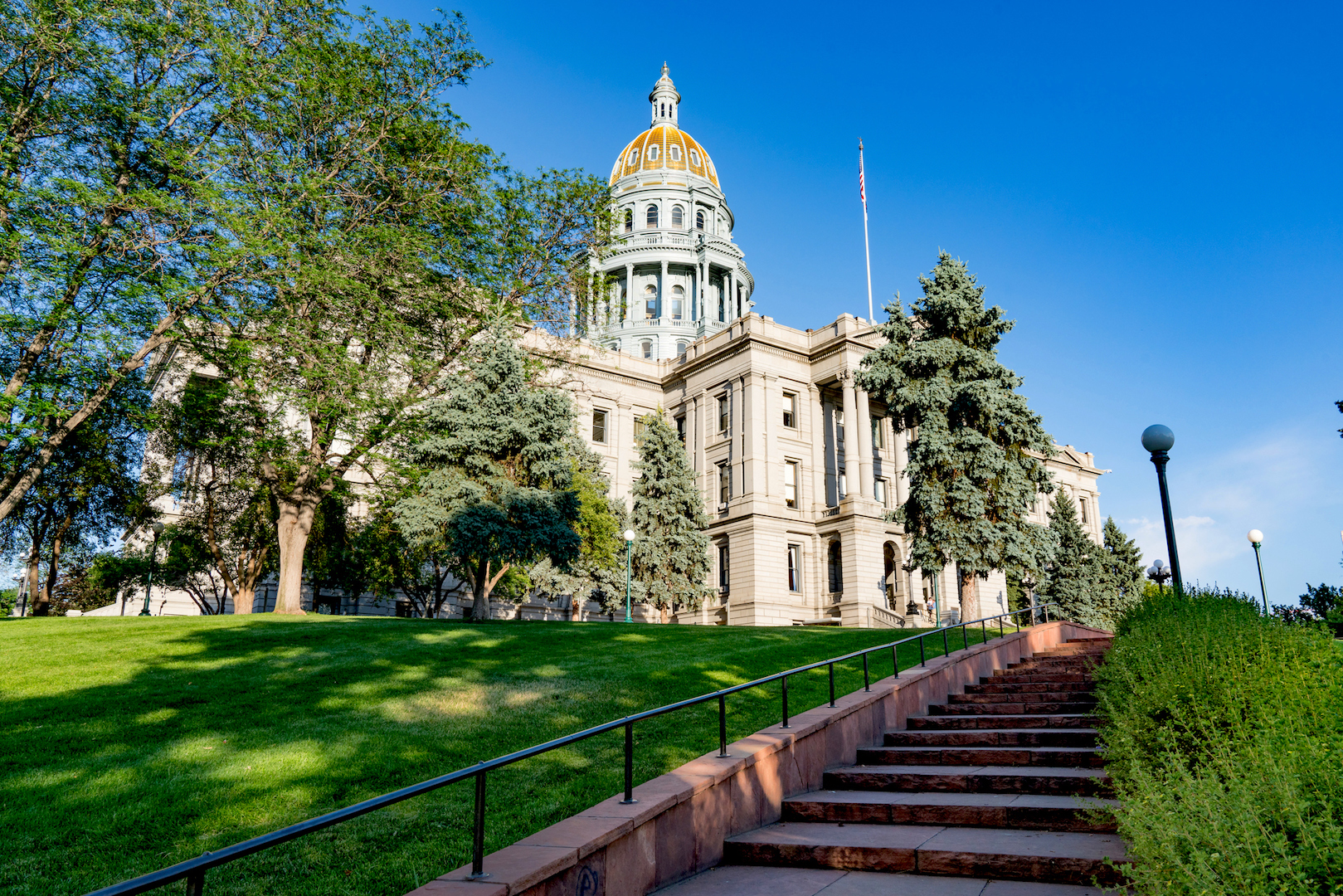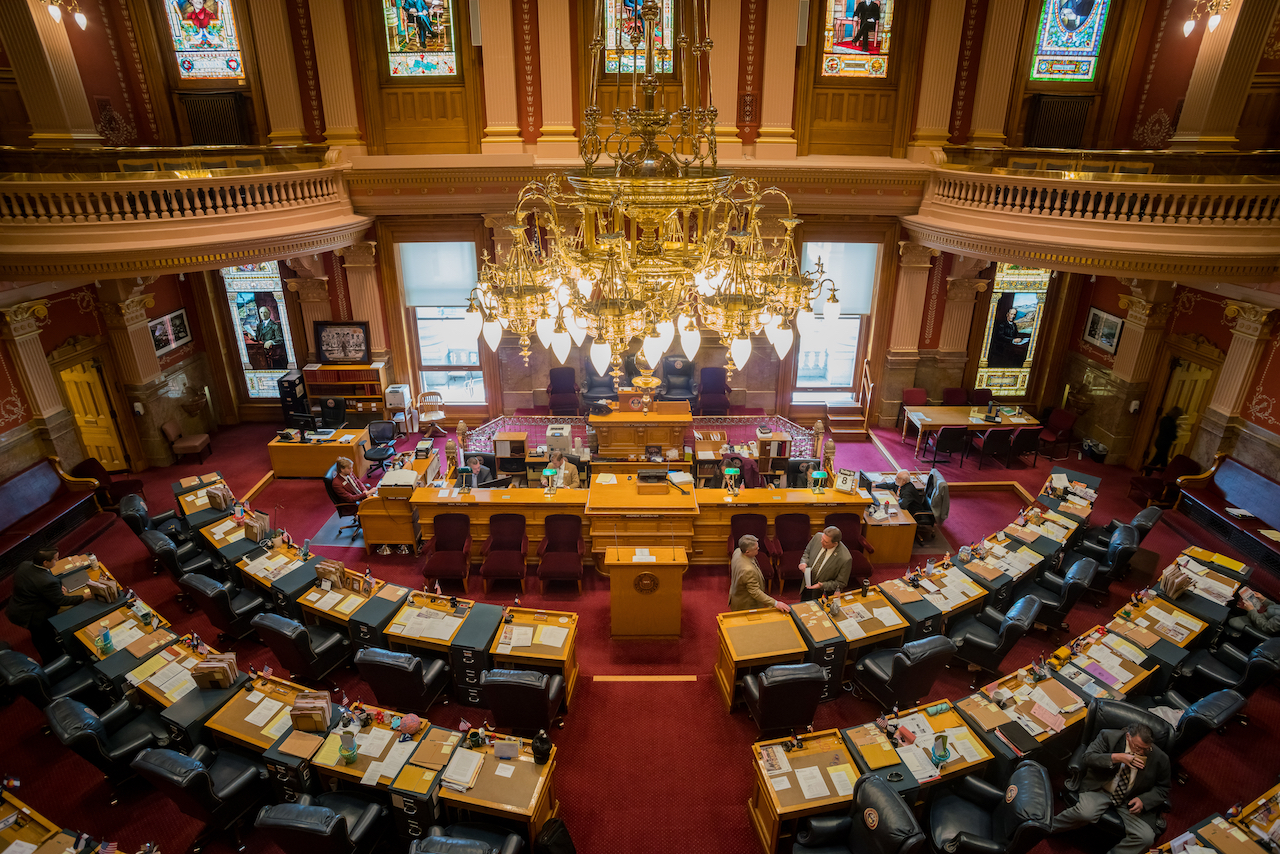Colorado’s 73rd legislative session began on Wednesday, January 12. The Colorado General Assembly is one of the most productive state legislatures in the country, passing 80% of bills introduced in 2021. Last year, the CO General Assembly passed 503 bills, including Colorado’s pandemic relief and rebuild package, long fought for investment in preventative mental health care and the popular Outdoor Equity Grant Program.
This legislative session has the potential to look very different than years past. Take a look at five areas of interest for the year.
Republicans Push A United Front
Since 2019, Colorado has had a Democratic governor and state legislature, making for some of the most productive legislative sessions in state history. Out of 65 members of the house, 41 are Democrats. Over the last three legislative sessions, Republicans became fractured among themselves, operating on the defense, with most pushing very few pieces of legislation, and instead relying on filibuster tactics to add amendments to Democratic bills.
However, with redrawn districts, Republicans have a chance to make the General Assembly more competitive this fall. They’ve taken this in stride, releasing a party agenda called “Commitment Colorado.” Their proposals focus on many of the same issues as Democrats with a different approach: Healthcare, cost of living and public safety. Ultimately, Republicans still need bipartisan support for any of their own legislation.
State Lawmakers Have A Massive Budget
Due to $3.6 billion in federal pandemic relief and a $3.2 billion spike in new state revenue, the state legislature has a potentially transformative budget on its hands. And because of Colorado’s complicated fiscal policy, lawmakers have to spend it all in the near term, or they lose it. One-time state revenue must be spent by the end of the year, while federal COVID relief is available until the end of 2024.
The general consensus among lawmakers and voters alike: Colorado needs serious investment in education, healthcare, infrastructure and public safety. However, lawmakers need to use tact in spending their budget. Federal COVID relief is a one-time source of aid. If legislators funded expensive state programs on a yearly basis, the brunt of funding would fall to taxpayers next year. They’ll have to be creative to avoid what’s known as a “fiscal cliff.”
While rising inflation and the Taxpayer’s Bill of Rights (TABOR) factor into how far the budget will ultimately stretch, legislators still have a chance to make a decade-defining impact on Coloradans’ way of life.
Managing the Cost of Living
Managing and lowering the cost of living in Colorado is the priority for several members of CO General Assembly leadership, including Speaker of the House Alec Garnett (D-Denver) and House Minority Leader Hugh McKean (R-Loveland), along with Governor Jared Polis. Gov. Polis wants to mitigate the cost of living in Colorado by reducing government fees and using state funds to reduce the cost of certain living expenses.
Within one proposal backed by Gov. Polis, Colorado residents could save money on vehicle registration, professional licenses and, for at least some time, gas. Following the momentum from last year, the governor also wants to make an even bigger push on reducing the cost of prescription drugs, one of his administration’s cornerstone issues.
Reducing the cost of living statewide takes multiple solutions and pieces of legislation. House Rep. Leslie Herod (D-Denver) wants to use state funds to close the gap in affordable housing and behavioral healthcare. Progress in both areas would have a large impact on mid and lower-income folks across the state.
Investing In Public Safety
Following rising crime rates statewide, there’s bipartisan agreement over focusing on public safety. Yet, there’s a lack of consensus over which solutions to pursue. Property crime and auto theft are the primary drivers of increased crime.
Moving upon the success of Denver’s STAR program and Aurora’s mental health response program, lawmakers are considering funding co-response programs throughout the state, where social workers and medical professionals accompany police. There will be debate over program details, as the original model of these programs serves as an alternative to police involvement, not an addition.
Since the pandemic began, rates of theft rose to the point where many law enforcement officers have expressed a lack of capacity and resources to address every call related to theft. Legislators are considering funding programs to hire and train more law enforcement officers in affected areas. The idea of hiring more police officers is certain to generate intense debate among legislators and voters.
Midterm Elections In Full Swing
To top off what serves to be an exciting legislative session, it’s also an election year. More specifically, it’s an election year with redrawn districts. This creates competition among legislators whose districts are now merged. Some colleagues will have to run against each other in the fall.
Additionally, some lawmakers are seeking higher office. In early January, State Senator Brittany Pettersen (D- Lakewood) announced her campaign for Colorado’s 7th Congressional District. Following Congressman Ed Perlmutter’s announcement of retirement from the district, the field is wide open, making Petersen one of the first to throw her hat in the ring. A handful of other legislators are considering congressional runs.
Every state representative is up for reelection in 2022, along with half of state senators. A lawmaker’s ability to deliver on their voters’ concerns factors into their odds of reelection, putting more pressure on legislators in competitive districts to see their bills passed. Several state representatives and senators reached their term limits, possibly allowing them to focus on their goals without worrying about voter approval and campaign donors.
The 73rd legislative session runs through May. You can keep up with the latest online.



